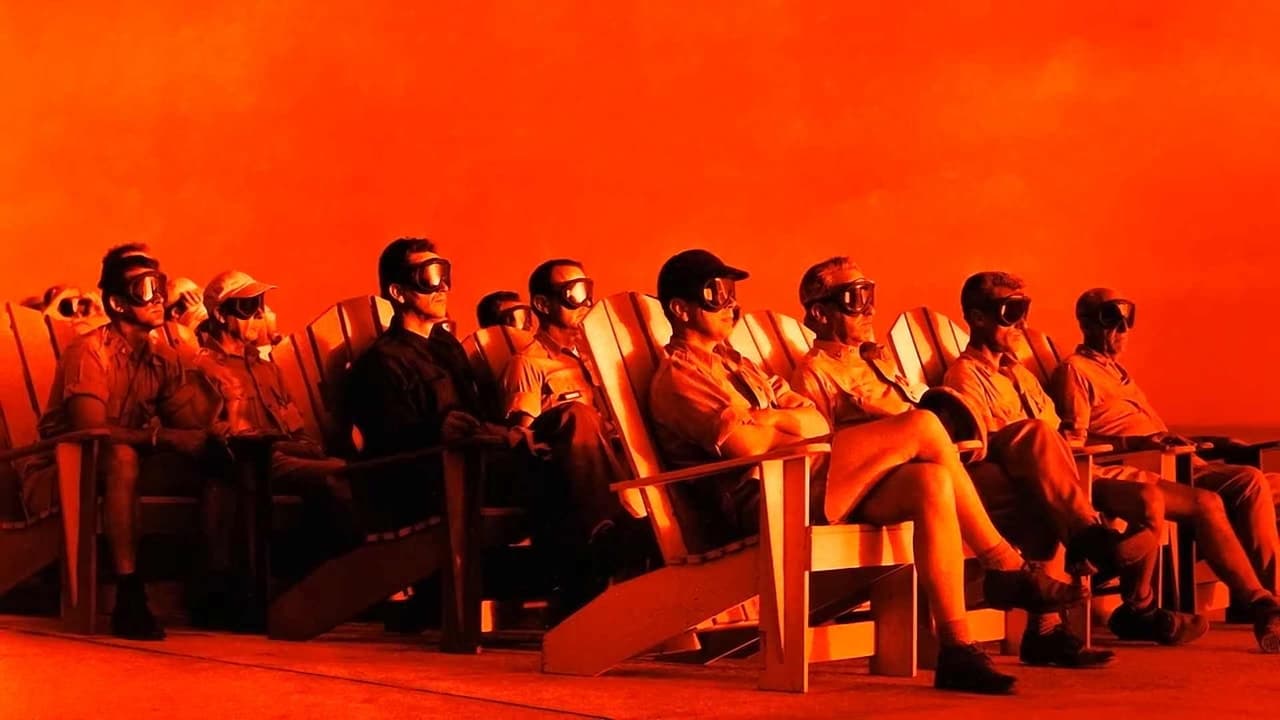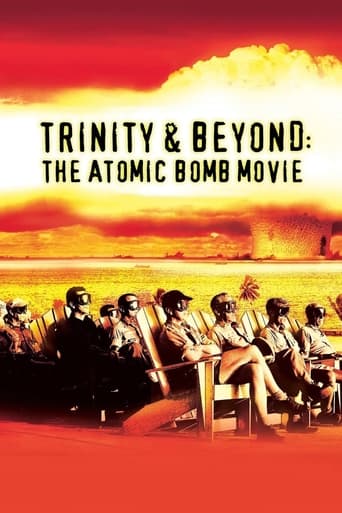

Excellent documentary narrated by actor William Shatner about the dawn of the Nuclear Age with the detonation of the first Atomic Bomb in the New Mexican Desert in he early morning hours of July 16, 1945. With the Atomic bomb in US hands it wasn't long before it was dropped on the Japanese cities of Hiroshima and Nagasaki killing as much as 130,000 people and thus ending the Second World War.It was after the war that the US started to test the atomic bomb in a number of islands and atolls in the vast Pacific Ocean which proved just how dangerous and destructive it was by vaporing both islands and ships, surplus destroyers battleships and even aircraft carriers, that the bomb was targeted at. It wasn't until late August 1949 that the US lost it's monopoly on the Atomic Bomb with the Soviet Unions detonation of its own in Eastern Siberia. With a major enemy the USSR now having the bomb which secrets was stolen from the US, by the likes of pro communists Klaus Fuchs and US Army Sergent David Greenglass and the Rosnebergs Julius & Ethel, from right under its nose the US was now determined to start testing bigger and far more destructive atomic or nuclear bombs. That in order to keep the Russians for gaining the upper hand over it in the race with the USA on the dead end road for achieving mutual destruction" or a Thermo Nuclear war which no side could possibly win.The film documents the tests conducted by the US and USSR of nuclear weapons that by 1963 at the signing by the two nations of the Nuclear Test Ban Treaty well over 330 atmospheric nuclear bombs were tested by the US Governemnt alone! If you add up all the other US nuclear tests,underwater and underground,they amount to some 1,000! That's not counting those conducted by the USSR and other nations with nuclear capacity, Britian and France, the number of nuclear tests reach almost 2,000 in just under 20 years after the first atomic bomb was exploded! It's a wonder that the world was still around by then since there was enough nuclear bombs exploded, one a monstrous 57 megaton blast by the Soviet Union, to have destroyed the Earth a couple of times over!With all the nations with nuclear weapons coming to their senses in how dangerous they are and trying to stop making and testing them Communist China suddenly and unexpectedly joined the nuclear club on October 16, 1964 with an Hiroshima type blast in the Gobi Desert making whatever gains in stopping the spread of nuclear weapons a mute point! With Communist China's leadership not willing to stop making and testing their new discovered toy or WMD: Weapon of Mass Destruction.One of if not the best documentary ever made about the both Atomic & Hydrogen Bomb with first time never before shown rare US and USSR as well as Communist China government footage that brings out just how destructive these devices are. Even in peace time nuclear tests have destroyed and polluted, with nuclear radiation, thousands of square miles of sea and land making it both uninhabitable and void of any signs of life. You can just imagine what a real nuclear war could do if a world leader of a country that has the bomb is crazy enough to start one.
... View MoreBlinding film about blowing up things really big things,eg islands in the sun. Its a film about three countries (USA,USSR,UK) who each try to out do each other on the fireworks display but a 4th country out does them all right at the end by setting one off and than riding into it on horse back with a sword and a horse with a mask now beat that. You cant can you.Personally although the ending was good i would of preferred to of seen the USSR try and fire one of those huge mummas at the moon to the tune of come on baby light my fire try to set the night on fireeeeee.But i would still recommend it. My favourite bit was when the bomb went boom.When do we have to wait for the sequel, do we have to wait for Iran to finish.
... View MoreThis film would have been nothing were it not for the outstanding scoring by the Moscow Symphony Orchestra. The music amplifies the horror, the bizarre and grotesque beauty, the grandiose irony of this film and its subject. Shatner's fact-like voice is like monochrome, and never distracts from the subject with character. It is a purposefully amoral film to good effect. Without stretching far beyond the immediate implications of a nuclear blast, and by staying devoid of ideology, we are left with the terrible phenomenon itself - the atomic blast.To me, this was a real horror movie... sitting paralyzed, bug eyed, shocked, mouth agape and all that, complete with surround sound and weighty, ponderous Russian orchestrations in grotesque minor keys. You pray to God they make presidents watch films like these.I also thought the ending "However..." sequence was perfect. To say that weapons find rest in the hands of fools becomes a truly shocking understatement when you see the sheer unhinged lunacy of the final scene.
... View MoreThis is the scientific version of "Threads" and has much more drama. William Shatner's low and 'Star Trek' warm monotone narration combined with earth shattering images provide this movie with entertainment that you just want to watch over and over again. The 3D section is excellent, especially if your watching it in Dolby pro-logic and on DVD. The most interesting moment for me personally is where the news reporters are at the test site and you can see every emotion in their faces just before the bomb goes off. The device detonates and we are shown the images of a house imploding and cars and buses being hurtled into the air and disintegrating upon impact with the heat blast. Pure quality. Put it this way, choice between "Threads" and "Trinity"? Trinity will always come first because what's portrayed is fact, not fiction.
... View More